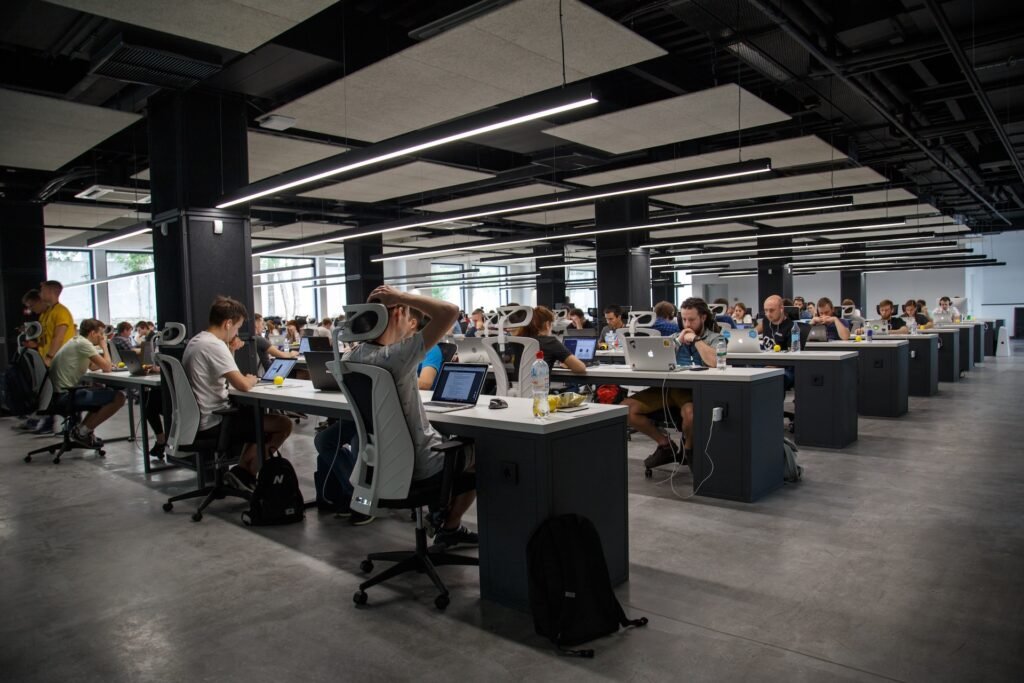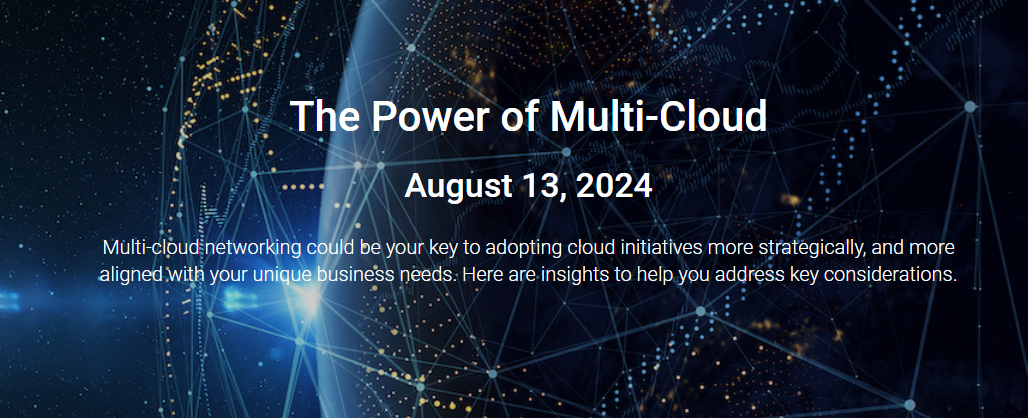Featured News :
View All
Workplace Diversity and Inclusion: Navigating Challenges and Building a Harmonious Environment
In today’s globalized and interconnected world, workplace diversity and inclusion have become essential components of a thriving and successful organization.…
Read MoreThe Role of HR in Change Management: Guiding Employees through Organizational Transitions
Change is a constant in today’s business landscape, driven by evolving market dynamics, technological advancements, and organizational growth. Effectively managing…
Read MoreThe Future of HR: Exploring AI and Automation in Human Resource Management
The realm of Human Resource Management (HRM) is undergoing a transformative shift with the integration of Artificial Intelligence (AI) and…
Read MoreRecommended :
Sort By Fintech Hub :
Employee performance reviews play a crucial role in fostering professional growth, improving job satisfaction, and enhancing overall team productivity. An effective performance review goes beyond evaluating past achievements; it provides an opportunity for meaningful feedback and goal-setting that drives continuous improvement. In this blog, we will explore the art of mastering employee performance reviews, offering valuable tips for delivering constructive feedback and supporting employee growth.
The Importance of Constructive Feedback:
- Continuous Improvement: Constructive feedback helps employees understand their strengths and areas for development, enabling them to continuously improve their skills and performance.
- Enhanced Motivation: By recognizing achievements and providing guidance on improvement areas, employees feel valued and motivated to excel in their roles.
- Clarity of Expectations: Performance reviews set clear expectations and align employees’ goals with organizational objectives, fostering a sense of purpose and direction.
- Professional Growth: Honest feedback provides insights into growth opportunities and career paths, enabling employees to take proactive steps to advance their careers.
Tips for Conducting Effective Performance Reviews:
- Prepare Thoroughly: Before the review, gather relevant data, performance metrics, and examples of accomplishments or challenges. This preparation ensures that the feedback is specific and evidence-based.
- Create a Comfortable Environment: Set a positive tone by creating a comfortable and respectful atmosphere. Begin the conversation by acknowledging the employee’s contributions.
- Focus on Behavior and Impact: When providing feedback, focus on specific behaviors and their impact on performance, team dynamics, and organizational goals.
- Balance Positive and Constructive Feedback: While addressing areas for improvement, also highlight the employee’s strengths and accomplishments. A balanced approach encourages a growth mindset.
- Be Specific and Actionable: Use specific examples to illustrate feedback and suggestions for improvement. This helps employees understand how to apply the feedback practically.
- Encourage Self-Assessment: Ask employees to reflect on their performance and share their perspectives. This promotes ownership and accountability for their growth.
- Set SMART Goals: Collaboratively set Specific, Measurable, Achievable, Relevant, and Time-bound (SMART) goals that align with the employee’s role and career aspirations.
- Listen Actively: Pay close attention to the employee’s responses and concerns. Active listening shows that you value their input and are committed to their development.
- Provide Development Opportunities: Offer resources, training, and mentorship to help employees address areas for improvement and further develop their skills.
- Follow Up: After the performance review, schedule regular check-ins to monitor progress, provide ongoing feedback, and adjust goals if necessary.
Mastering employee performance reviews requires a thoughtful and strategic approach to delivering constructive feedback and fostering growth. By creating a supportive and open environment, focusing on specific behaviors and impact, and collaboratively setting goals, organizations can help employees realize their potential and contribute effectively to the team’s success. Performance reviews are not only a tool for evaluation but also a platform for dialogue, learning, and development. When done effectively, they empower employees to thrive, achieve their career aspirations, and make meaningful contributions to the organization’s continued growth.
The remote work revolution has transformed the traditional workplace, ushering in a new era of flexibility, collaboration, and global connectivity. As organizations increasingly embrace remote work, effective management and engagement of virtual teams become essential for maintaining productivity and fostering a positive work culture. In this blog, we will delve into best practices for successfully managing and engaging remote teams, ensuring their success and well-being in the remote work landscape.
Challenges and Opportunities of Remote Work:
- Geographical Diversity: Remote work allows organizations to tap into a diverse talent pool, bringing together individuals with different perspectives and expertise from around the world.
- Flexibility and Work-Life Balance: Remote work offers employees greater flexibility in managing their work schedules and personal commitments, contributing to improved work-life balance.
- Communication and Collaboration: Effective communication tools and platforms enable seamless collaboration among remote team members, breaking down geographical barriers.
Best Practices for Managing Remote Teams:
- Clear Communication Channels: Establish clear communication channels for remote teams, including video conferencing, chat platforms, and project management tools. Regular check-ins and updates keep everyone informed and aligned.
- Set Expectations: Define clear expectations regarding work hours, deliverables, and communication responsiveness. Establishing guidelines helps prevent misunderstandings and ensures accountability.
- Goal-Oriented Approach: Focus on outcomes and goals rather than micromanaging tasks. Clearly define objectives, key results, and performance metrics to guide remote team members.
- Embrace Technology: Leverage technology for virtual collaboration, file sharing, and project management. Ensure that team members have access to the necessary tools and resources to work efficiently.
- Provide Flexibility: Acknowledge and accommodate different time zones and work preferences. Flexible work arrangements allow team members to optimize their productivity.
Best Practices for Engaging Remote Teams:
- Regular Check-Ins: Schedule one-on-one and team meetings to maintain regular communication. These interactions provide opportunities to discuss progress, challenges, and goals.
- Virtual Team Building: Organize virtual team-building activities and social events to foster camaraderie and strengthen relationships among remote team members.
- Recognition and Appreciation: Acknowledge and celebrate achievements, milestones, and contributions. Regularly express gratitude to remote team members for their dedication and hard work.
- Professional Development: Offer remote team members opportunities for skill development and career growth through online training, workshops, and mentorship programs.
- Promote Work-Life Balance: Encourage remote team members to maintain a healthy work-life balance by setting boundaries and unplugging after work hours.
- Inclusive Communication: Ensure that all team members have equal opportunities to share their ideas and perspectives. Create an inclusive environment where diverse voices are heard and valued.
The remote work revolution has reshaped the way organizations operate, emphasizing the importance of effective management and engagement of virtual teams. By implementing clear communication practices, setting expectations, and leveraging technology, organizations can successfully manage remote teams and ensure their productivity. Engaging remote teams through regular check-ins, virtual team-building activities, and recognition initiatives fosters a sense of belonging and motivation. As remote work continues to evolve, embracing these best practices will not only lead to a thriving remote workforce but also contribute to a resilient, adaptable, and successful organization in the digital age.
The realm of Human Resource Management (HRM) is undergoing a transformative shift with the integration of Artificial Intelligence (AI) and automation technologies. As organizations embrace digital innovation, HR departments are leveraging AI-driven tools to streamline processes, enhance decision-making, and elevate the employee experience. In this blog, we will delve into the future of HR by exploring how AI and automation are reshaping various aspects of human resource management, from recruitment to employee engagement.
The Role of AI and Automation in HR:
- Recruitment and Talent Acquisition: AI-powered tools are revolutionizing the recruitment process. Machine learning algorithms can analyze vast amounts of data to identify top candidates, predict candidate success, and match skills to job requirements more accurately.
- Candidate Screening: Automated screening processes evaluate resumes, online profiles, and applications to shortlist candidates. This expedites the initial selection process while reducing human bias.
- Interviewing and Assessment: Virtual interview platforms equipped with natural language processing and sentiment analysis capabilities assess candidates’ verbal and non-verbal cues to gauge their suitability for the role.
- Onboarding and Training: AI-driven chatbots provide personalized onboarding experiences, answering employee queries, providing training resources, and facilitating a smoother transition into the organization.
- Employee Engagement and Satisfaction: AI-powered sentiment analysis monitors employee feedback, surveys, and social interactions to gauge morale and identify areas for improvement.
- Performance Management: Automation tools facilitate real-time performance tracking, enabling managers to provide timely feedback, set goals, and identify development opportunities.
- Data-Driven Insights: AI algorithms analyze workforce data to identify trends, predict turnover, and offer insights for strategic decision-making.
Benefits of AI and Automation in HR:
- Efficiency and Time Savings: Automation streamlines repetitive tasks, enabling HR professionals to focus on strategic initiatives and high-value activities.
- Enhanced Decision-Making: Data-driven insights and predictive analytics guide informed decision-making, leading to better talent management and organizational planning.
- Reduced Bias and Fairness: AI helps mitigate unconscious bias in recruitment and talent management processes, promoting diversity and inclusion.
- Personalized Experiences: AI-driven tools personalize employee experiences, improving engagement, learning, and career development.
- Scalability: Automation supports HR departments in managing larger workloads and responding to organizational growth.
- Improved Employee Relations: AI-powered chatbots provide timely responses to employee queries, fostering better communication and relations.
Challenges and Considerations:
- Privacy and Data Security: AI implementation requires robust data protection measures to ensure employee data remains secure and compliant.
- Change Management: Successfully integrating AI and automation requires proper change management to address employee concerns and facilitate a smooth transition.
- Ethical Use of AI: Ensuring AI algorithms are free from bias and discriminatory outcomes is critical to maintaining fair and equitable practices.
The future of HR is intricately intertwined with the evolution of AI and automation technologies. By embracing these innovations, organizations can optimize HR processes, enhance decision-making, and elevate the employee experience. However, it is essential to strike a balance between technology and the human touch. The human element remains crucial in cultivating a culture of empathy, collaboration, and mentorship. As the HR landscape continues to evolve, organizations that harness the power of AI and automation while upholding core human values are poised to shape a future of dynamic and empowered workplaces.
Employee benefits have come a long way from traditional offerings like health insurance and retirement plans. As the workforce evolves and becomes more diverse, so do the expectations and preferences of employees. Today’s employees seek benefits that not only support their financial security but also enhance their overall well-being, work-life balance, and professional growth. In this blog, we will explore how employee benefits have evolved over time to align with changing workforce needs and preferences, creating a more dynamic and inclusive workplace.
Traditional vs. Modern Employee Benefits:
- Traditional Benefits: In the past, employee benefits primarily focused on essentials such as health insurance, retirement plans, and paid time off. These benefits aimed to provide financial security and basic support to employees.
- Modern Benefits: Today, modern employee benefits encompass a wider range of offerings that cater to holistic well-being. These include mental health support, flexible work arrangements, professional development opportunities, wellness programs, and more.
Adapting to Changing Workforce Needs:
- Work-Life Balance: With remote work becoming more prevalent, employees now seek benefits that promote work-life balance. Flexible work hours, remote work options, and policies that discourage after-hours communication are becoming increasingly important.
- Mental Health Support: The focus on mental health has led to the inclusion of services such as counseling, therapy, and mindfulness programs as part of employee benefits. These offerings acknowledge the importance of emotional well-being.
- Professional Development: Today’s workforce values continuous learning and growth. Employers are offering opportunities for skill development, workshops, and tuition reimbursement to empower employees’ professional advancement.
- Diversity and Inclusion: Employee benefits are evolving to be more inclusive. Companies are offering support for diverse family structures, gender-neutral parental leave policies, and benefits that address the unique needs of different demographics.
- Financial Wellness: Beyond retirement plans, financial wellness programs help employees manage their finances, plan for major life events, and reduce financial stress.
- Wellness Initiatives: Wellness programs have expanded to include fitness classes, wellness challenges, and access to apps and resources that promote physical health.
- Remote Work Support: As remote work becomes more common, employers are providing technology stipends, ergonomic support, and resources to help employees create an effective home office environment.
The Benefits of Evolved Employee Benefits:
- Enhanced Employee Engagement: Modern benefits cater to employees’ holistic well-being, leading to increased job satisfaction, motivation, and engagement.
- Talent Attraction and Retention: Comprehensive benefits that align with changing needs attract top talent and improve employee retention rates.
- Improved Work Culture: Offering benefits that support work-life balance and mental health fosters a positive and supportive work culture.
- Productivity and Performance: Employees who feel well-supported are likely to be more productive, creative, and focused on their tasks.
- Employee Loyalty: When organizations invest in employees’ well-being and growth, it creates a sense of loyalty and commitment.
The evolution of employee benefits reflects the changing dynamics of the modern workforce. By adapting to the diverse needs and preferences of employees, organizations can create an inclusive and supportive work environment. Comprehensive benefits that prioritize holistic well-being, work-life balance, and professional growth not only attract and retain talent but also contribute to a more engaged, motivated, and productive workforce. As the workforce continues to evolve, so too will the landscape of employee benefits, ensuring that they remain aligned with the ever-changing needs of employees.
In recent years, the concept of work has undergone a significant transformation, propelled by advancements in technology and changing employee expectations. Remote work and flexible work arrangements have emerged as powerful tools that redefine the traditional office-based work environment. In this blog, we will explore the benefits, challenges, and best practices associated with remote work and flexible work arrangements, highlighting why they have become a prominent trend in today’s professional landscape.
- The Rise of Remote Work: Remote work, once considered a luxury for a select few, has become a mainstream phenomenon. The proliferation of digital tools and communication platforms has enabled employees to work from anywhere, breaking the barriers of time and location. This flexibility offers numerous advantages for both organizations and their workforce.
- Advantages for Employees: Remote work empowers employees with increased autonomy and work-life balance. It eliminates lengthy commutes, reduces stress, and allows individuals to tailor their work schedules to suit their personal lives. Furthermore, it provides opportunities for individuals who may face geographical constraints, enabling them to contribute to organizations irrespective of their physical location.
- Benefits for Organizations: Adopting remote work and flexible arrangements can yield substantial benefits for businesses. Companies can tap into a global talent pool, finding the best-suited individuals for their roles without being constrained by location. This leads to increased diversity and innovation within teams. Additionally, remote work can reduce overhead costs associated with physical office spaces and facilities.
- Challenges to Address: While remote work offers remarkable advantages, it also comes with its own set of challenges. Maintaining effective communication, collaboration, and team cohesion can be more challenging when employees are dispersed across various locations. Additionally, ensuring data security, managing productivity, and monitoring work hours require a thoughtful approach.
- Best Practices for Remote Work: To overcome the challenges and maximize the benefits of remote work, organizations should implement best practices. These include establishing clear communication channels, leveraging project management tools, fostering a culture of trust and accountability, and providing necessary support and resources for remote employees. Regular check-ins, virtual team-building activities, and utilizing video conferencing tools can help maintain strong connections within remote teams.
- Hybrid Work Models: As organizations adapt to the changing landscape, hybrid work models are gaining popularity. These models combine the best of both worlds, offering employees the flexibility to work remotely while also providing opportunities for in-person collaboration and team bonding. By striking a balance, organizations can cater to individual preferences and optimize productivity.
- The Future of Work: Remote work and flexible arrangements are not just temporary trends; they represent the future of work. As the workforce becomes more global and technologically connected, businesses must embrace these new ways of working to attract and retain top talent. By fostering a flexible work culture, organizations can adapt to evolving employee needs and stay ahead in the competitive job market.
Remote work and flexible work arrangements have revolutionized the way we work and offer tremendous benefits for both employees and organizations. By embracing this trend, organizations can unlock new opportunities for growth, productivity, and talent acquisition. However, it is essential to address the associated challenges and implement best practices to ensure seamless collaboration, communication, and employee well-being. The future of work is here, and organizations that embrace remote work and flexible arrangements will position themselves at the forefront of innovation and success.
A recent ruling by the 2nd U.S. Circuit Court of Appeals in Kinnin v. Skidmore College has cleared Skidmore College in Saratoga Springs, N.Y., to terminate an IT manager who lodged a discrimination complaint. The court upheld the employer’s investigation findings, which revealed the manager’s unsubstantiated claim and instead exposed her history of being an ineffective manager who mistreated specific employees without clear reasons.
• Following a complaint from an employee alleging racial discrimination by the IT manager, the manager accused him and another manager of gender discrimination. Skidmore College enlisted the services of an external investigator who conducted interviews with 26 witnesses and examined over 200 documents. The investigation yielded no evidence supporting claims of gender or race-based discrimination. However, it revealed the IT manager’s excessive micromanagement, intense criticism, and assignment of menial tasks to certain employees, leading to their resignation or termination. Consequently, Skidmore’s vice president made the decision to dismiss the IT manager.
• In response, the IT manager filed a lawsuit alleging gender discrimination and retaliation in violation of Title VII of the Civil Rights Act of 1964. The lower court ruled in favor of the college, a decision subsequently affirmed by the 2nd Circuit. The court explained that the vice president’s decision to terminate the manager was based on the investigator’s report, and there was no evidence to suggest discriminatory influence on the report or the decision-making process. The court emphasized that an independent investigation can shield an employer from liability when adverse actions are taken for reasons unrelated to discrimination.
• Key takeaways:
- The Skidmore ruling provides reassurance to HR professionals that impartial and thorough investigations can lead to proper actions while avoiding violations of Title VII.
- The ruling underscores the importance of ensuring investigations into discrimination allegations and subsequent employment decisions remain untainted by discriminatory input.
- Plaintiffs, like the IT manager in this case, may invoke the “cat’s paw” theory, suggesting that a decision, although made by a neutral party, was significantly influenced or rubber-stamped by someone with a discriminatory motive. However, in this case, the 2nd Circuit concurred with the lower court that the accused individuals did not play a meaningful role in the termination decision, as they were just part of the larger investigation and were not involved in the decision-making process.
- Strong documentation supporting employment decisions significantly bolsters their defensibility in court. A 2022 ruling by the 8th Circuit highlighted how a university’s robust and well-documented record of an employee’s performance issues successfully countered a Family and Medical Leave Act claim.
- Employers can minimize their liability risk by providing managers with training on promptly identifying and resolving problems, as recommended by the U.S. Equal Employment Opportunity Commission. This proactive approach helps resolve issues before they escalate into unlawful discrimination cases.
- Ongoing training and open communication are crucial, especially for remote workers, in preventing misconduct and resolving problems swiftly. Though investigations can be more challenging in remote work setups, the fundamental framework remains the same, requiring a clear understanding of alleged misconduct from the outset.
Top of Form
New York City’s law regulating the use of artificial intelligence (AI) in hiring decisions has officially taken effect. Under this new law, employers who utilize AI tools to make hiring decisions must disclose this information to candidates.
Additionally, employers are now required to conduct annual third-party “bias audits” of their AI technology or software. The purpose of these audits is to identify and disclose any potential discrimination that may occur as a result of AI’s use in the hiring process. Employers must make this information public, allowing candidates to be aware of how AI may impact their applications.
Domenique Camacho Moran, an employment attorney at Farrell Fritz, explained that the law specifically applies to automated employment decision tools (AEDTs) and does not encompass human decision-making processes. If an employer uses an AEDT, they must commission an independent audit, publish a summary of the findings, inform applicants and employees about its use, and provide alternative selection processes if requested.
Employers found to violate the law will face fines of $500 for the first offense, and $1,500 for subsequent violations.
The focus of this legislation is on addressing the risks associated with AI tools that make decisions beyond human comprehension. John Hausknecht, a professor at Cornell University, stated that one of the main concerns is that humans often cannot explain the specific data points on which algorithms base their decisions. The goal of the law is to track and collect data, analyze it, and report on it, allowing for future adjustments and improvements in regulations.
According to the law, AI screening disclosure must include instructions on how individuals can request alternative selection processes or reasonable accommodations, if available under other laws. Employers, however, are not required to use a different screening process even if requested.
While the law aims to address potential biases in AI hiring tools, some employment attorneys, such as Niloy Ray from Littler Mendelson, express concerns about the additional costs and compliance burdens it may impose on small employers. The requirements of the law may create ambiguity and potential risks of non-compliance.
It’s worth noting that a previous survey indicated that many hiring employers are seeking candidates with experience using AI chatbots like ChatGPT, which gained popularity after its release in November 2022.
Progressive Move Promotes Well-being and Enhances Productivity
In a remarkable demonstration of commitment to employee well-being, Organization has granted its workforce a rejuvenating 9-day break, allowing employees to recharge and prioritize self-care. This progressive initiative aims to promote work-life balance, reduce burnout, and enhance overall productivity.
Recognizing the importance of rest and rejuvenation for optimal performance, Organizations have taken a bold step to prioritize the well-being of their employees. The extended break provides a substantial opportunity for employees to relax, spend time with loved ones, pursue personal interests, and engage in activities that promote physical and mental well-being.
In today’s fast-paced and demanding work environment, it is increasingly crucial for employers to acknowledge the impact of sustained work-related stress on employee morale, productivity, and overall health. Offering a substantial break demonstrates its commitment to supporting the holistic well-being of its workforce.
Studies consistently indicate that adequate rest and downtime contribute to increased productivity, creativity, and job satisfaction. By encouraging employees to take a significant break, Organization recognizes that allowing time for relaxation and self-care ultimately benefits both the individuals and the organization as a whole.
The extended break is designed to provide employees with the opportunity to recharge and return to work feeling refreshed, motivated, and ready to tackle new challenges. By embracing this work-life balance initiative, Organization aims to foster a positive work environment that prioritizes the mental, emotional, and physical health of its employees.
In a previous article, I discussed the concept of “star profiles” as a means to enhance hiring decisions and establish a performance review system. In this column, I will illustrate the everyday utilization of star profiles and their role in talent development and retention, drawing inspiration from Rabbi Kenneth Brodkin of Congregation B’nai Israel in Manalapan, N.J. Rabbi Brodkin has created a star profile for a director position at his synagogue, which exemplifies the value of this approach:
Director of Synagogue Life
- Demonstrates a passion for our mission to build a thriving center of the Jewish community.
- Works with the rabbi to manage engaging programs and efficient operations.
- Demonstrates excellence in welcoming and engaging people in synagogue life.
- Works creatively and proactively, anticipating and addressing key needs in our organization.
These four sentences encapsulate Rabbi Brodkin’s vision for the director role, capturing the attributes that maximize the individual’s contribution to the synagogue and the broader Jewish community. Each word has been carefully chosen to align with the right-brain concept of success—the vivid image or script of actions that will create the most significant positive impact.
To highlight the contrast between a star profile and a job description, let’s consider the first sentence. While a candidate may possess all the necessary qualifications, lacking passion and ambition in building a thriving Jewish community can lead to a failed relationship with the rabbi.
Similarly, the second sentence emphasizes the importance of the director’s involvement in developing engaging and efficient programs and operations. Regardless of qualifications, failure to contribute in these areas can result in problems.
The third sentence focuses on the critical factor of welcoming staff members in religious and community organizations. The success of an organization often hinges on the staff’s ability to connect with and engage members, donors, volunteers, and community leaders. It is not solely a matter of qualifications but rather how the director interacts with others.
Lastly, the fourth sentence acknowledges the unpredictable nature of leading a religious organization. Urgent circumstances, crises, or community events may divert the leader’s attention. In such instances, the director must proactively respond and anticipate needs to ensure smooth operations without any breakdown or impairment.
Essentially, the star profile fosters a relationship between the boss and the employee. It conveys the message that the director’s success is intertwined with the rabbi’s success and emphasizes collaboration, idea generation, and open communication to make the synagogue an exceptional place within the community.
If you are interested in unleashing employee talent and retaining skilled individuals, I recommend considering star profiles for each position under your supervision. HR professionals should also familiarize themselves with the star profile approach to serve as coaches to organizational leaders, assisting them in developing a clear vision of success for each role. By refining and crafting words that inspire both leaders and their team members, HR professionals can facilitate strategic conversations about the job and its significance within the organization.
In conclusion, Rabbi Brodkin aptly describes the star profile as an empowering way to define a position’s essence and an exciting tool for development. Once a compelling star profile is established, it can serve as the centerpiece for strategic discussions about the role with team members, applicants, and ultimately, the successful candidate.
Latest News :
- All
- Blogs
Mastering Employee Performance Reviews: Tips for Constructive Feedback and Growth
By HR Hub |
Remote Work Revolution: Best Practices for Managing and Engaging Virtual Teams
By HR Hub |
Looking for the latest insights, news and trends in FinTechhub.today?
Subscribe Now !
Turn the Great Disconnect into the Great Reconnect
Reduce costly communication breakdowns across your organization. Discover how you can navigate the demands of hybrid communication…
Reshaping the Workplace and the World
During this next edition of Spotlight, panelists will discuss their past experiences and today’s challenges with inclusion…
Agile Amplified for Hybrid Teams
Product leaders want to deliver quality innovation at lightning speed while engaging their teams in hybrid Agile…
Drive Your Demand Gen and Content Marketing Goals with the Right Partner


























